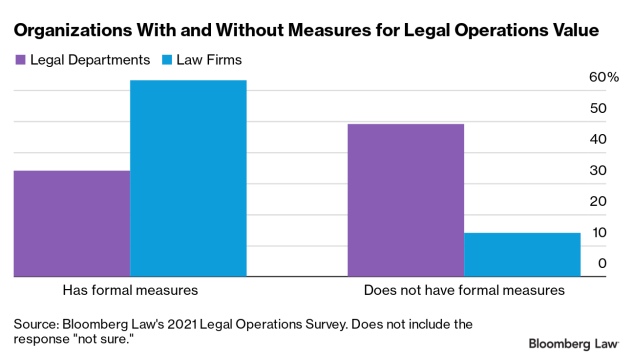Organizational resilience and adaptability define success in today’s disrupted environment. A modern legal team is instrumental in working with businesses to revitalize their limits of taking appropriate action ethically, legally, and reputationally so that they can tap into new opportunities for driving growth.
A legal counsel is regarded as a critical resource and valued business partner. Every company — big or small — has diverse legal requirements, from intellectual property work and contract management to regulatory investigations and risk assessment.
And when you are a fast-scaling business with a small legal department or a mere General Counsel (GC), you know you need more hands to accomplish what you do — legally. The last thing you want at this crucial growth stage is to face a legal risk you are not equipped for.
Sure, your legal team needs a larger headcount. But to scale successfully and build a counsel that is adept, flexible, and hands-on, you need more than just to hire for the sake of hiring. Here are six tips to create a legal team that offers operational clarity for continual growth.
1. Define your business objective
Hiring is an investment for any company and lawyers are expensive. You must, therefore, be clear about why you need to scale your legal counsel.
What is the primary challenge you are hoping to achieve? Is your company pivoting? Are you planning to raise funding? Find your reason and have examples or proof to support that.
We suggest building a business case because your stakeholders (or leadership) believe your proposal is aligned with the long-term business priorities. Also, look at the financial and non-financial benefits of scaling your legal team — how will other departments benefit from legal counsel?
For instance, if your sales team has doubled, it makes sense to have more robust legal support. More sales reps mean more deals, and more deals mean more legal contracts to prepare and review, which invariably requires a larger legal team.
A strong business case will give your leadership little room to reject or hesitate over your offer and keep your hiring efforts focused.
2. Leverage business data and study key metrics
An in-house legal counsel is inherently more familiar with how the company operates, its strategy, blind spots, and idiosyncrasies. It is, therefore, better positioned to minimize issues before they become huge problems.
Find out how much the company is spending on legal resources for major projects, such as acquisition, a funding round, or regulatory approval. The parameters you measure are essential but vary from business to business. So, determine key performance indicators (KPIs) that truly matter to you.
Having a more extensive legal counsel means your business has more resources to dedicate to a high-pressure project, such as an IPO, a funding round, or a massive deal.
Interact with the leadership team to get an understanding of what they expect from you, how they want legal to deliver, and the metrics they consider high-priority.
3. Prioritize legal resources by the impact of decisions
As a business, it is vital to discuss key corporate decisions at leadership meetings and assign appropriate service levels for every department based on the impact a decision has on the overall business objectives. Many legal teams prioritize their workloads based on urgent requests made by business partners.
If you are able to identify decisions that pose novel legal questions in the future, you can integrate appropriate legal resources into business workflows.
Navigating diverse disruptions in decision-making has become the norm for companies, and a legal team must guide business partners through disruption — equipping them to take applicable risks and change in response to external conditions.
4. Automate and digitally transform your legal counsel
How do you get a newly-built legal team to work together efficiently? Through proper channels and approval processes, of course!
An important course of action is to automate manual or time-consuming tasks such as budget approval requests, time and expense tracking, contract management, and so on for the legal team.
However, the truth is that legal teams often struggle to exploit technology and plan to follow the hype rather than focus on their underlying requirements. Using smart legal software can enable them to automate and streamline legal work.
They can be better empowered to create self-serve and self-help tools for their clients. This frees the team to focus on high-value tasks where they can add value as unique experts, such as providing strategic advice to the business or engaging in negotiation.
In addition to the powerful benefits, the legal team can unearth a wealth of data and reports from such software and create controls to manage risk automatically.
Therefore, assess the legal department processes to identify operational workflows that can be best addressed by technology and linked to critical business outcomes.
5. Build a plan for data management and team collaboration
As the legal team scales, they must take data collection and management seriously. The number of contracts requested by each department, the number of contracts reviewed by each layer, the amount of time it takes to turn around a contract, and so on are relatively straightforward metrics that any legal team should keep tabs on.
At the end of the day, you must know what your employees are doing at all times — what they spend their effort and time on the most. Besides, the legal team must think about how to capture, organize, study, and report on data from the viewpoint of establishing processes and systems.
Blasting a department-wide email or shouting over the cubicles when you need to find specific information may be effective when the team is small, but that falls apart quickly due to a lack of knowledge management when you scale.
When the legal team has data at their fingertips, they can easily store and share work deliverables and delegate tasks accordingly — without wasting time or energy. That is why data centralized documentation is essential, such as a shared doc or an intranet site.
6. Foster dynamic skill-building with the legal team
Legal teams have traditionally enhanced their skills by hiring talent to support future requirements. The way they can hit the ground running may feel right initially, but this will only temporarily alleviate things.
This approach can be unsustainable for businesses with limited budgets and an increase in unpredictable demands. Therefore, it is also essential to dynamically identify skill gaps and adjust the skills matrix within the legal team.
Partner with HR to build a shared skills inventory, describing available talent to support the legal team. Additionally, create processes to decide when to develop the necessary skills in-house and when to opt for external hiring pipelines, such as outsourcing to legal service providers or niche counsels.
Over to you
Scaling a legal team only makes sense if you know what you want to achieve with their help. Suppose their purpose and role are not clear.
In that case, this can cause skewed priorities and mismatched expectations — ill-equipping the team to deliver at the best of their capacity and resulting in much furor among other business departments.
So, if you plan to scale your legal team, go step-by-step — keeping the current needs, budget, and future in mind.


